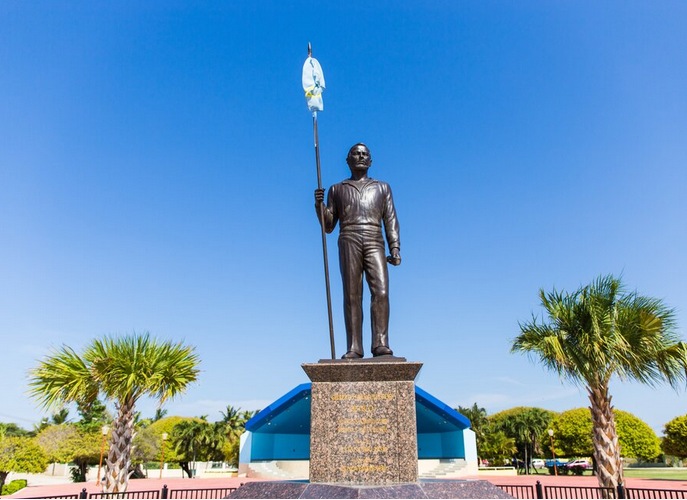
Betico Croes is a central figure in Aruba’s history, recognized as the “Father of the Nation” for his tireless fight for autonomy and his contributions to strengthening Aruba’s cultural identity. His political and social legacy has left an indelible mark on the island, impacting generations and paving the way toward a future of self-determination and progress.
A Lasting Political Legacy
The Fight for Autonomy
- In 1971, Betico founded the Movimiento Electoral di Pueblo (MEP), a political party that led the movement for Aruba’s separation from the Netherlands Antilles.
- His leadership was instrumental in organizing the 1977 referendum, where 95% of voters supported Aruba’s independence.
- This effort culminated in the achievement of the “Status Aparte” on January 1, 1986, which granted Aruba autonomous status within the Kingdom of the Netherlands.
Promotion of Social Projects
- Betico championed an inclusive vision that fostered unity and social welfare. Among his notable achievements are:
- The creation of the transportation company Arubus.
- The FCCA housing company, which improved access to housing for many Aruban families.
The Cultural Impact of Betico Croes
Strengthening Aruban Identity
- Betico spearheaded the adoption of Aruba’s national flag and anthem in 1976, solidifying the island’s national symbols.
- He was a tireless advocate for the Papiamento language, promoting its use in official and educational contexts.
Celebration of “Betico Day”
- Every January 25th, Aruba celebrates “Betico Day” in honor of his legacy. The day includes:
- Sporting events and cultural festivals.
- Folkloric performances that highlight the island’s rich cultural traditions.
Inspiration in the Arts
- Betico inspired the creation of the emblematic Grupo di Betico, which celebrates Aruba’s traditional music.
- His name is immortalized in plazas, streets, and a statue in Oranjestad, symbolizing his vision and sacrifice for the Aruban people.
Reflections on His Legacy
A Role Model
- Betico Croes remains an enduring source of inspiration for new generations of Arubans. His vision of an autonomous and united Aruba continues to guide political and social leaders.
- The values he championed—unity, self-determination, and progress—remain foundational pillars of modern Aruban society.
International Recognition
- Croes’s peaceful negotiation strategy is studied as a model of political transition in the Caribbean.
- His influence extends beyond Aruba, as he is recognized as a key figure in the decolonization of the region.
Betico Croes’s contributions to Aruba’s culture, society, and politics are undeniable. His fight for autonomy and commitment to national identity have left a legacy that continues to be celebrated and respected. As the “Father of the Nation,” his vision of a free and prosperous Aruba continues to inspire generations, ensuring that his memory endures in the heart of every Aruban.
